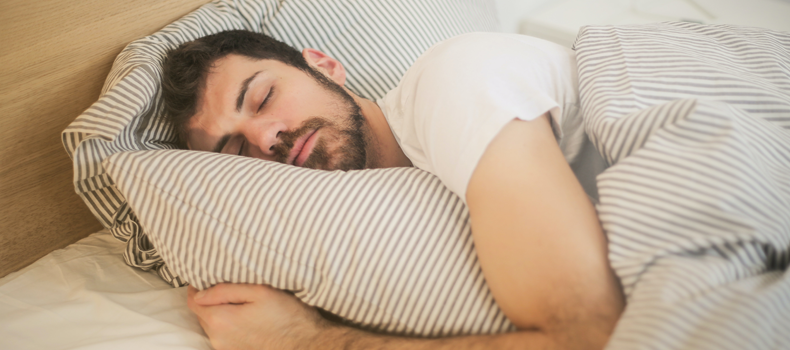Published June 8, 2021
Learning how to sleep better is something we should all be doing. Sleeping is a central part of all our lives – as fundamental to our wellbeing as eating. It’s a truism that we spend around a third of our lives asleep but just think about what that actually means: if you’re 30 years old you have spent a whole decade asleep – and your 60-something parents no less than 20 years.
For something we all spend so much time engaged in, there is still a lot we don’t know about sleep. Its exact function remains a topic for research and debate. We don’t really understand why dreams occur, nor have we figured out quite why slumber is so vital to our health. But vital it is.
Inadequate sleep
Not getting enough sleep is associated with a whole host of health problems, including:
- Weight gain
- High blood pressure
- Increased risk of heart disease
- Increased risk of diabetes
- A weakened immune system
And then of course there are the psychological effects – difficulty concentrating, poor memory, anxiety, low moods. Anyone who has ever had a bad day at work after sleeping poorly will recognise these symptoms.
The greater the sleep deprivation, the worse the picture gets. Miss a whole night’s sleep and you may start to experience hallucinations and other symptoms similar to psychosis.
A more peaceful night
People sleep badly for all sorts of reasons, among them:
- Stress
- Depression
- Illness
- Overindulgence in alcohol
- An uncomfortable bed
- A bedroom that’s too hot or too cold
With sleep so important to our wellbeing, taking action is wise if you are struggling to rack up some quality slumber.
Experts recommend the following:
Cultivate good sleeping habits
If every time you go to bed you spend an hour playing Candy Crush on your phone, then toss and turn and stare at the ceiling, it won’t be long before your brain begins to associate being in bed with not sleeping rather than sleeping. Instead develop a routine: go to bed at the same time every night – at a time you typically feel sleepy, and get up at the same time too. This will train your brain to think of bed as a place for sleep and not a place to feel restless.
On a similar note, go easy on the naps. If you indulge in an extended snooze during the afternoon or after dinner, you will be more likely to wake up at night.
Consciously relax when you go to bed. Many people find a ‘wind down’ routine helpful: breathing exercises, meditation, and soothing music can all help send a clear message to your mind that it’s time to sleep.
Control your exposure to light
Light plays an important role in our circadian rhythm – the daily cycle that controls our sleeping and waking patterns. Expose yourself to sunlight during the day – open the curtains, go outside, get fresh air. In the evenings, limit screen time in the last few hours before bed. Backlit screens emitting blue-tinted light are known to disrupt the circadian rhythm and make falling asleep more difficult. It is worth noting, however, that most modern phones and tablets include a feature which will shift this blue light into a warmer, more sleep-friendly yellow in the evenings. On iOS this feature is called Night Shift: look for it in Settings.
Be physically active
Exercise and activity during the day leads to better sleep at night. Our bodies are built for movement and work best when we live in harmony with our nature: we are kinetic beings.
Eat and drink right
Food and drink affects our sleep more than we may realise.
Caffeine and alcohol aren’t great choices in the last few hours before bed. Caffeine is a stimulant, and while alcohol might make you sleepy, too much will wake you up again later.
When it comes to food, sugary snacks and carbohydrates such as rice and bread can disrupt sleep if eaten too close to bedtime, as can spicy foods, which often trigger heartburn or indigestion.
Eating and drinking modestly in the evening is sensible. Too much liquid in our system when our head hits the pillow will have an inevitable, sleep-disrupting result. A digestive system working busily to digest a heavy meal is not very conducive to revitalising slumber either.
Good health in general promotes good sleep – but we’re all individuals and a one-size-fits-all approach may not deliver the best results.
Written by Bev Walton
Food Writer and Nutritionist, dietician
A chef of over 35 years with experience in all types of cuisine, dietary plans, recipe development, health and nutrition. I have been writing for over 10 years for both magazines, websites and ghostwriting for ebooks, Kindle and fully published books. I have a degree in nutrition and dietetics and work with restaurants and organisations within the healthcare profession. I am also able to take high quality photographs of recipes created. No writing task is too great, and whilst I specialise in the above, I am able to write about any topic you throw at me. Member of the Guild of food writers.

